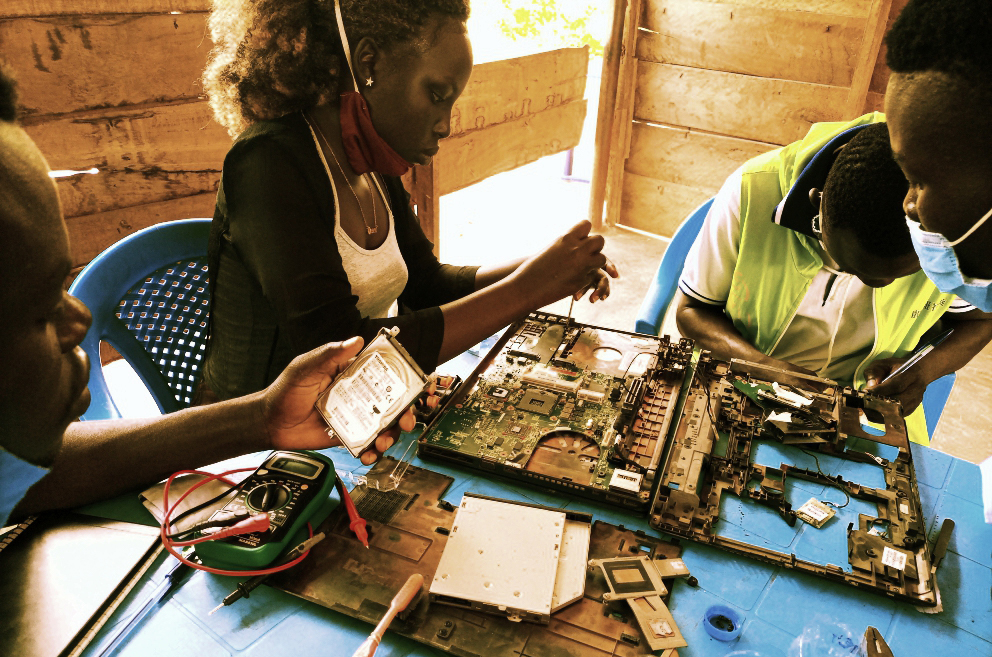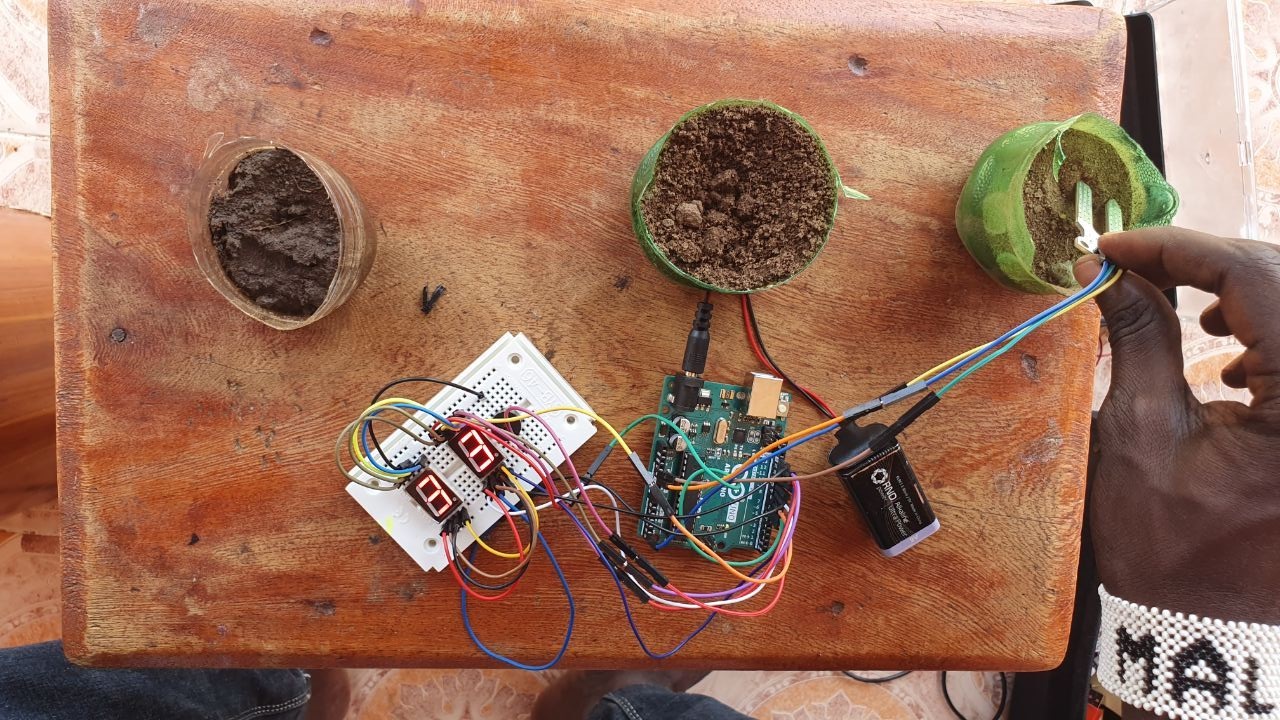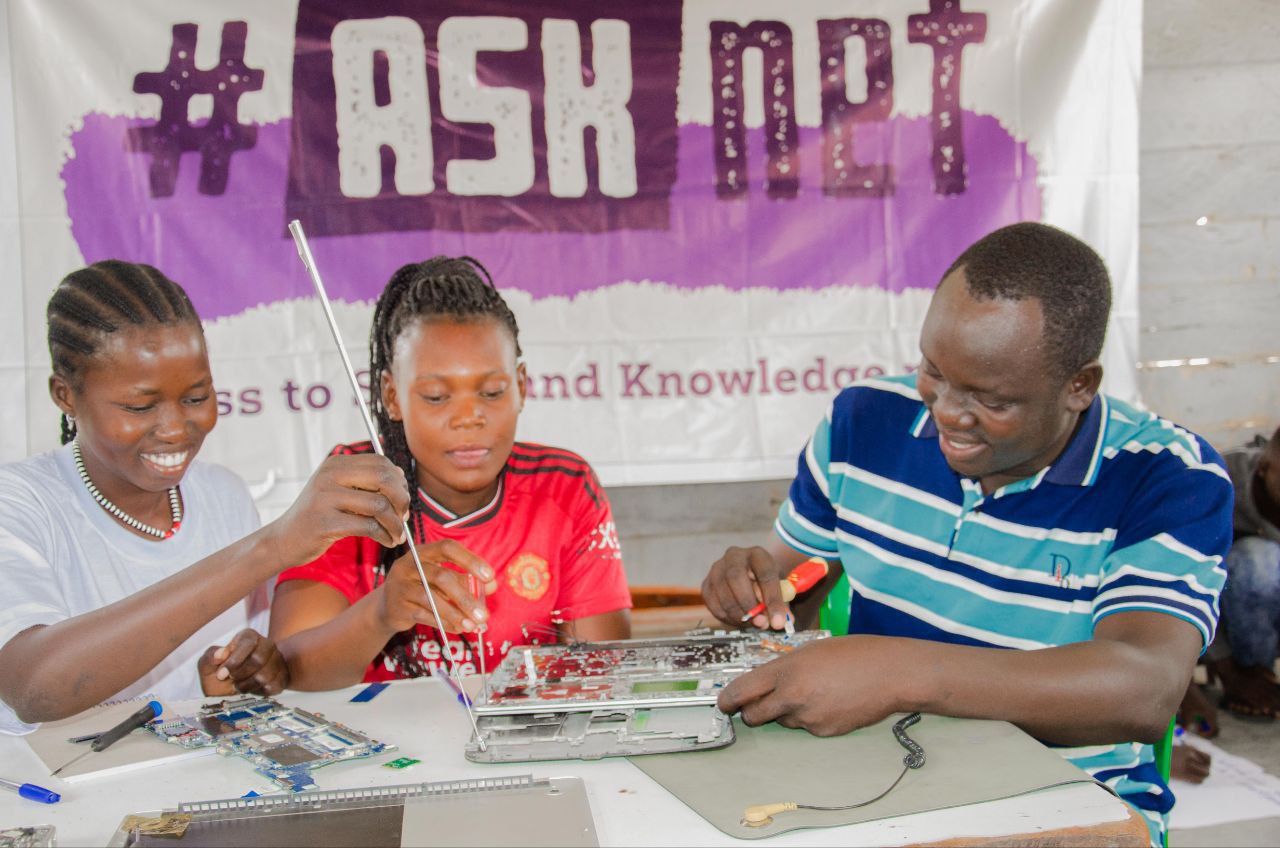Repair Culture as a Bridge for Peace and Innovation
In the heart of Rhino Camp Refugee Settlement, a quiet revolution hums beneath the surface — the whirr of a soldering iron, the click of recycled circuit boards, the laughter of young technicians tinkering with purpose. Community Creativity for Development (CC4D) turns everyday repair into a catalyst for social cohesion, innovation, and environmental care.
Formed in 2019 by a group of South Sudanese refugee youth tech professionals, Dawa Edina, Richard Maliamungu and Mathew Lubari, CC4D has grown into a dynamic, cross-border initiative with hubs in Rhino Camp, Uganda, and more recently in Yei, South Sudan - where the co-founders originally come from. Their mission is simple yet transformative: to connect communities through creativity, technology, and repair. Whether fixing a broken radio or co-designing an open-source IoT project, CC4D uses practical innovation as a bridge between people — across divides of displacement, nationality, and experience.
“Repairing together is more than fixing things — it’s how we rebuild trust, share knowledge, and remind each other that sustainability starts with care.”
— Mathew, CC4D Co-Founder

The Right to Repair — and to Belong
CC4D’s co-founder, Mathew Lubari, has become a recognized advocate for the right to repair movement across East Africa — championing repair culture not only as an environmental imperative but also as a social practice of resilience. Through Repair Café events, youth from refugee and host communities come together to learn electronics repair, refurbish devices, and reduce e-waste while fostering dialogue and connection.
These gatherings have become symbolic spaces of peacebuilding — demonstrating how shared skills and purpose can counter isolation, dependency, and division. For CC4D, repair isn’t just technical work; it’s a vehicle for preaching social change, a way of turning small acts of maintenance into acts of collective care.
Technology for Local Solutions
Beyond repair cafés, CC4D’s projects demonstrate how open-source innovation can thrive even in low-resource settings:
💧 Auto Water Dispenser (2023)
In response to public health crises like COVID-19 and Ebola, CC4D engineers designed a low-cost, Arduino-powered automatic handwashing device for schools. Using recycled plastic containers and rechargeable batteries, the dispenser reduces contamination risk while modelling circular design and community recycling.🌱 IoT Soil Moisture Monitoring Device (2024)
Developed for refugee settlement gardens, this device uses Arduino sensors to monitor soil conditions and optimize irrigation, helping farmers prevent crop loss and manage limited water supplies. Built with open-source tools and community training, it illustrates CC4D’s blend of digital literacy, environmental stewardship, and local problem-solving.
These projects, shared openly through the CC4D GitHub repository, enable others to replicate and adapt their models — turning knowledge into an ecosystem of mutual aid and digital inclusion.

A Growing Network of Makers
As part of the #ASKnet (Access to Skills and Knowledge Network), CC4D stands within a larger movement of grassroots innovation hubs across East Africa. They are also members of GIG (Global Innovation Gathering), AfricaOSH, Africa Makerspace Network, and GOSH (Global Open Science Hardware) — connecting local ingenuity to a global dialogue on open technology and sustainability.
“We use what we have, to make what we need — together.”
— CC4D Team Motto
In 2021, CC4D received international recognition, winning the EU: Africa “Journey Hackathon” award for Job Security and Financial Services, affirming their model of creative resilience as a viable pathway toward youth empowerment and sustainable livelihoods.
